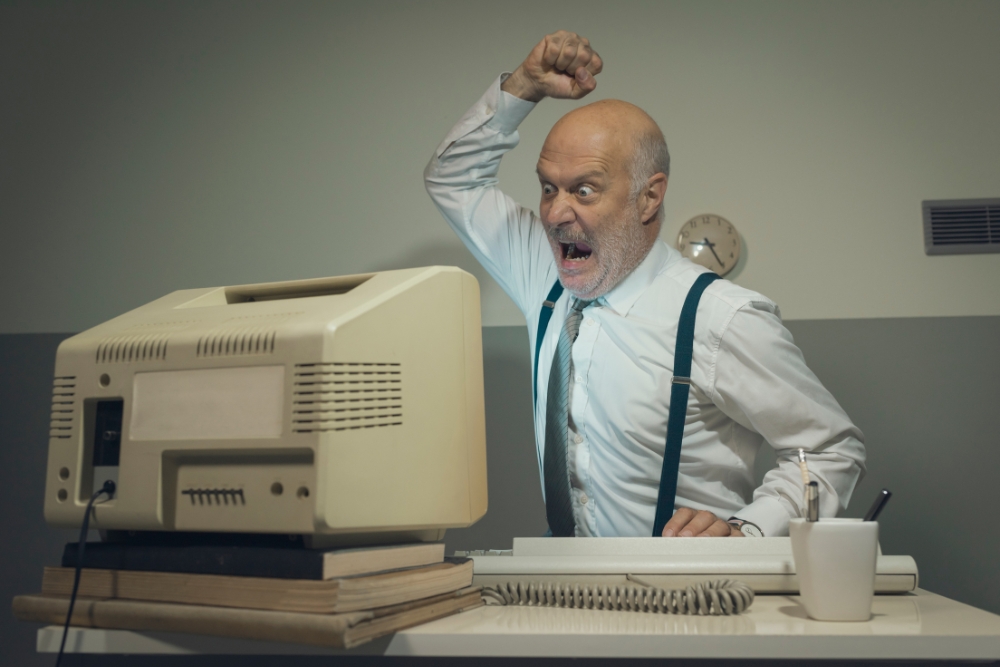
Full-Stack Digital Marketer vs. Specialist: Who Do You Need?
Let’s face it: modern digital marketing feels like trying to keep 15 browser tabs open in your brain… all at once.
You need someone who gets SEO, understands social media marketing, can tweak a Google Ads campaign, write some semi-decent email marketing copy, and maybe even throw in a meme or two for LinkedIn. No pressure, right?
So here’s the big question: do you hire a full-stack digital marketer, or do you call in the specialists?
Let’s break it down like a marketer with a deadline and too much caffeine.
What is a Full-Stack Digital Marketer, Anyway?
A full-stack marketer is the person you want in your corner when you’re navigating the jungle of online marketing.
They’re skilled across the board – content creation, analytics, SEO, paid advertising, CRO, email flows, even some copywriting and influencer outreach on a good day. They don’t just “know a little of everything” – they know enough to execute effective marketing campaigns across platforms.
This type of well-rounded pro is ideal for businesses that want to grow without hiring a whole marketing team right away. Whether you’re a small company or a larger one consolidating your marketing stack, a full-stack digital marketing approach offers flexibility and speed.
And look, I might be biased (okay, I am biased), but as someone who’s been living and breathing full-stack marketing for years, I truly believe the range and adaptability of a full-stack marketer is hard to beat. Specialists are great, but let’s be honest – they can be limited. When the strategy shifts, a full-stacker pivots without panic.
The Power of the Specialist
Now, if the full-stack marketer is the multitool, a specialist is the scalpel. They go deep in one area, like SEO, paid ads, or content strategy, and bring razor-sharp expertise to the table.
They’re your go-to when your business has already identified its high-performing marketing channels and you’re ready to scale one of them fast. Or when your search engine optimisation just isn’t cutting it and you need someone who dreams in keyword research and backlink analytics.
A digital marketing team made up of specialists can deliver serious results, but only if there’s a strategy to keep them all aligned.
| Feature / Skill Area | Full-Stack Digital Marketer | Marketing Specialist |
|---|---|---|
| Skill Range | Broad across all digital marketing | Deep in one or two areas |
| Flexibility | High – can pivot quickly | Medium – focused on specific tactics |
| Best For | Small teams, general growth | Scaling a single channel or tactic |
| Cost Efficiency | More value per hire | May require multiple hires |
| Project Ownership | End-to-end campaign management | Tactical execution within a campaign |
| Learning Curve | Constant learner, fast adapter | High expertise, slower to pivot |
| Example Tasks | SEO, email, ads, analytics, content | Just SEO, or just paid ads, etc. |
| Team Role | Jack-of-all-trades | Subject matter expert |
| Great Fit For | Startups, SMBs, lean teams | Enterprises, niche growth, scaling efforts |
When a Full Stack Marketing Approach Makes Sense
Hiring a full-stack marketer is like getting a one-person marketing agency, minus the red tape.
Perfect for:
- New business setups that need marketing to run lean but smart
- Companies experimenting with digital growth tactics
- Teams without a full in-house marketing department
- Anyone tired of hearing “we don’t have a person for that”
They can pivot fast, run A/B tests, and pull insights from analytics tools before lunch. They can launch social media ads in the morning and optimise email open rates by afternoon.
And trust me, I’ve worn all these hats (and a few more questionable ones). The versatility pays off, especially when you’re managing multiple channels and no one’s got time to assemble a full squad.
Full-Stack Marketing vs. Full-Stack Agency
Don’t want to hire in-house? Consider a full-stack agency. These teams offer an external solution packed with both generalists and specialists.
A strong full stack marketing agency can handle digital marketing campaigns, execute across multiple channels, and still feel like part of your internal team. Just make sure you’re getting strategy, not just execution.
The Role of Full-Stack Digital Marketing in Today’s Business World
The modern business world moves fast – like, “we-just-launched-and-now-we-need-a-viral-LinkedIn-campaign” fast.
And in this high-speed digital ecosystem, the role of a full-stack marketer has gone from “nice-to-have” to “absolutely essential.” Whether you’re a growing brand, a lean startup, or a company trying to align marketing efforts across departments, a full-stack digital marketing approach helps you stay ahead without losing your mind – or your message.
Why? Because marketing involves more than just one channel or tactic. It’s about orchestrating your entire marketing ecosystem in a cohesive, strategic, and sometimes slightly chaotic symphony.
What a Full-Stack Marketer Brings to the Table:
- Versatility Across Marketing Disciplines: From SEO to email marketing, from mobile marketing to guerrilla marketing, a full-stack marketer understands how each piece fits together to drive results.
- End-to-End Campaign Ownership: These pros can design, launch, and optimise digital marketing campaigns without waiting on ten other people to do their part.
- Well-Rounded Marketing Strategy: They combine creative chops with analytics and data-driven decisions, delivering well-rounded campaigns that speak to the customer journey at every stage.
- Expertise Across Platforms: Whether it’s crafting a carousel for LinkedIn, optimising a Google Ad, or building engaging social media content, they know how to get the most out of marketing platforms without spreading resources thin.
- Adaptability in Changing Environments: With new marketing trends and tools popping up daily, a full stack marketer is trained to pivot quickly, making them a valuable asset for companies that evolve fast.
- Collaboration With CMOs and Teams: A strong full-stack digital marketing professional aligns with strategic goals, making them an ideal right hand for a CMO or small marketing team trying to scale efficiently.
- Growth Marketing Mindset: At their core, they’re not just executing marketing tasks – they’re building systems and funnels for sustainable, scalable growth.
So… Who Should You Hire?
Here’s your TL;DR:
- Need to cover a lot of ground with one hire? Go full-stack marketer.
- Have a well-oiled machine and want to optimise one part of it? Call in the specialist.
- Want a little of both? Build a small team with one full-stacker and a few targeted experts.
- Want someone to just handle it all? A full-stack agency might be your best friend.
Final Thoughts
Whether you’re building a business from scratch or refining an existing marketing strategy, choosing between a full-stack digital marketer and a specialist is all about context.
From where I sit (and yes, it’s usually in front of 24 open tabs), full-stack wins for flexibility, resourcefulness, and that crucial “I got this” attitude.
Because at the end of the day, the best marketing isn’t just about tools and tactics – it’s about understanding the big picture and making it work, piece by piece.
So whatever route you take, just make sure it includes someone who can laugh at algorithm changes and still hit conversion goals.
Frequently Asked Questions
01 Can a full-stack marketer replace an entire digital marketing team?
While a full-stack marketer brings a broad skill set across digital marketing disciplines, they can’t fully replace a complete marketing team forever—especially as marketing needs scale. But for smaller companies or early-stage businesses, they’re a serious MVP.
02 Is full-stack digital marketing effective for B2B companies?
Absolutely. A well-rounded full-stack digital marketing strategy works for B2B too—think content marketing, SEO, email funnels, and LinkedIn strategies all handled under one roof. Great for building relationships and pipelines.
03 How does a full-stack agency differ from hiring an in-house full stack marketer?
A full-stack agency often provides a team with both generalists and specialists, offering comprehensive marketing across platforms. An in-house full-stack marketer brings agility and internal alignment but may need external help for complex tasks like advanced marketing automation.
04 What kind of training does a full stack marketer need?
Most full stack marketers build their skills over time—starting with foundational marketing courses, then branching into SEO, social media management, content creation, and tools like marketing automation platforms. Staying sharp with marketing trends and data-driven decision-making is key.
05 Does full-stack marketing support long-term growth or just short-term wins?
Done right, full-stack marketing supports both. With data-driven strategies and an eye on customer journey optimisation, a full stack marketer can drive marketing results that scale - especially when paired with smart marketing tactics and tech from your technology stack.
